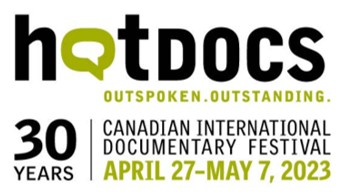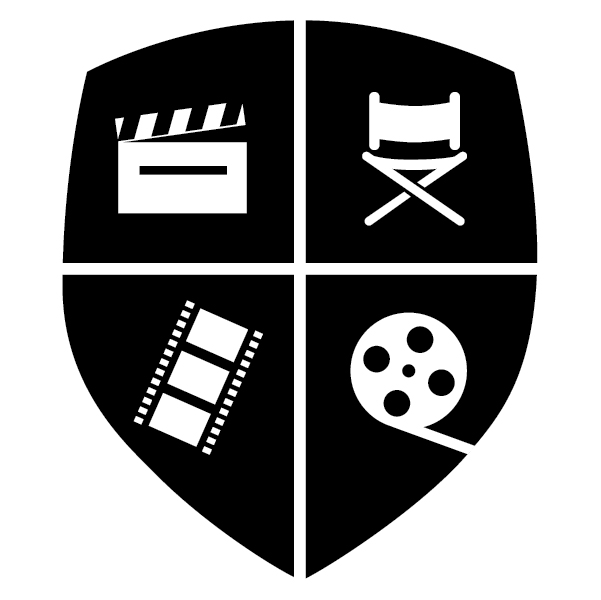Filmmaker 5 with Emil Langballe and Lukasz Konopa: Theatre of Violence
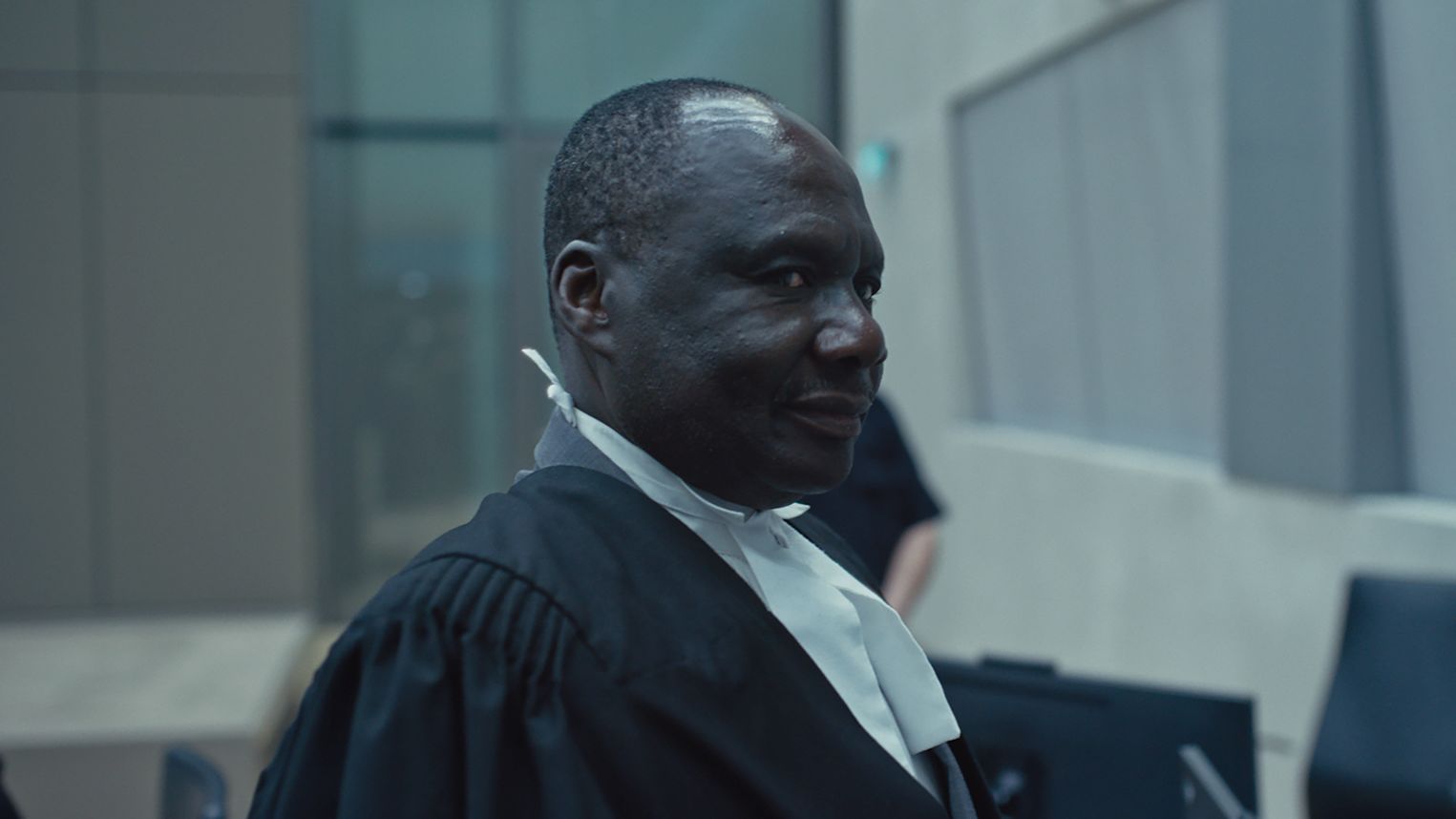
In December 2022, one of the most sensational cases regarding a former Ugandan child soldier, Dominic Ongwen, was finally settled at the International Criminal Court (ICC) in The Hague. Abducted at the age of nine by the Lord’s Resistance Army (LRA), Dominic Ongwen was forced to be a child soldier in a group ravaging northern Uganda for decades. Ongwen rose through the ranks becoming a high-ranking officer just under controversial LRA leader, Joseph Kony. The ICC found Ongwen guilty on 61 out of 70 counts of crimes against humanity, including mutilation, torture, murder, slavery, pillage, recruitment of child soldiers, rape, forced marriage and forced pregnancy. According to Ongwen, he was brainwashed as a child, manipulated and threatened into following orders. Documentary film Theatre of Violence follows Ongwen’s trial through an extraordinary opportunity to follow his defense lawyer Krispus Ayena and his team, as well as the prosecution team.
This powerful film raises many questions, among them: Where is the line between victim and executioner? What is the source of evil? Are we born with an inherent moral compass? Do we have free will—or are we simply products of our environment? And, how do can justice be done, both for the victims of civil war and for child soldiers who are themselves victims?
In advance of its North American premiere at the 2023 Hot Docs Festival, Classic Couple Academy asked co-directors Emil Langballe and Lukasz Konopaøj about Theatre of Violence.

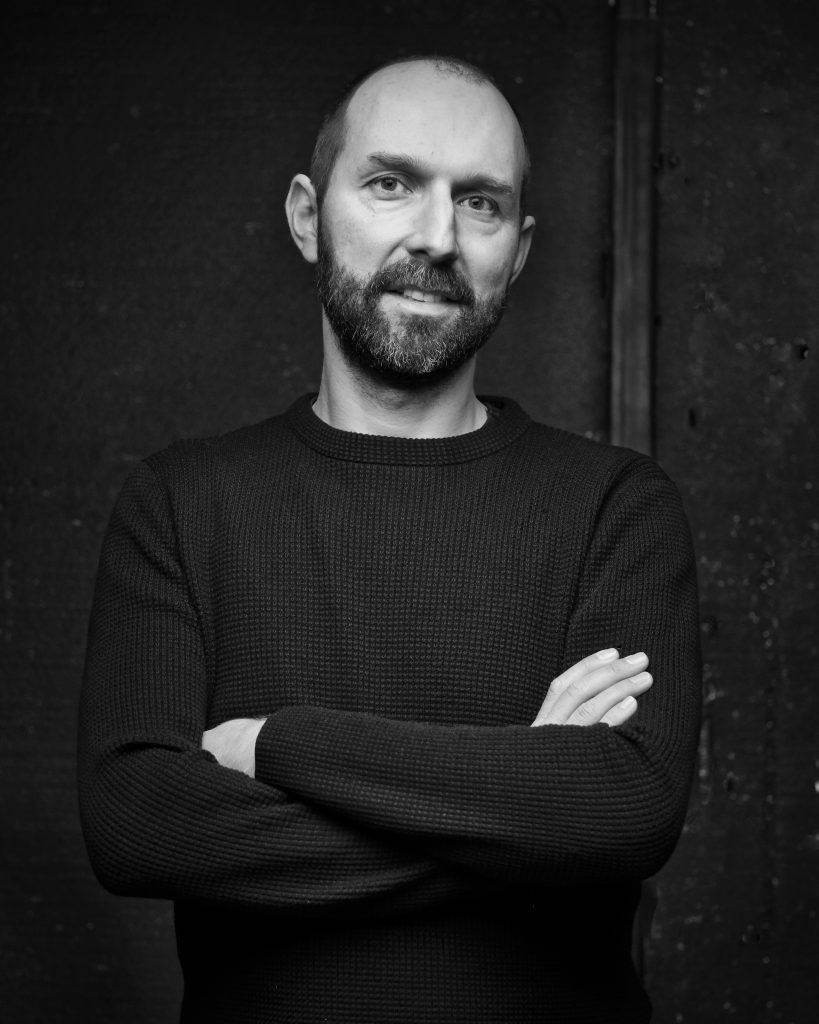
Filmmaker 5.1: You were given extraordinary access to Ugandan child soldier Dominic Ongwen’s defense team. How did you come to establish these relationships? Was anything pre-determined to be off limits?
When we first stumbled upon the news of Dominic Onwgen’s trial, we were intrigued by the complexity and multi-layered nature of his case. It didn’t take us long to decide that we needed to delve deeper and research the topic more thoroughly. Major newspapers like The New York Times and The Guardian were already covering it, so we were quite convinced that there must be other filmmakers who were already pursuing this story. But we took our chance and Googled the phone number for the International Criminal Court in The Hague, hoping to speak with someone from Dominic Onwgen’s defense team. To our surprise, we were immediately able to connect with one of his lawyers, who was passing by the reception at that very moment. It was a lucky coincidence, and it marked the beginning of a lengthy process of gaining their trust. Over the next few months, we flew to The Hague several times to discuss our intentions and explain why we felt it was important to make a film about this case. Eventually, we were granted access under one condition: the film and any of our footage couldn’t be publicly released before the final appeal.
Filmmaker 5.2: As Westerners, how did you ensure you accurately portrayed the Ugandan point of view in the film, representing the people’s culture?
From the very beginning we were aware of our own position as Westerners, and therefore made a special effort to seek out diverse perspectives and question our own preconceptions. Working alongside a team of consultants from Uganda and the surrounding region—including journalists and experts—we went to great lengths to identify potential “blind spots” and gaps in our understanding of the local culture. Perhaps most importantly, we also had the privilege of learning from our protagonists, such as Rosalba Oywa—a highly respected human rights and peace activist in the region. Our film offered her a platform to share her valuable insights and opinions. When that is said, we don’t perceive it as one singular Ugandan point of view but many different and often conflicting points of views coming from a variety of Ugandans with various backgrounds and ethnicities, which we tried to incorporate in our film.
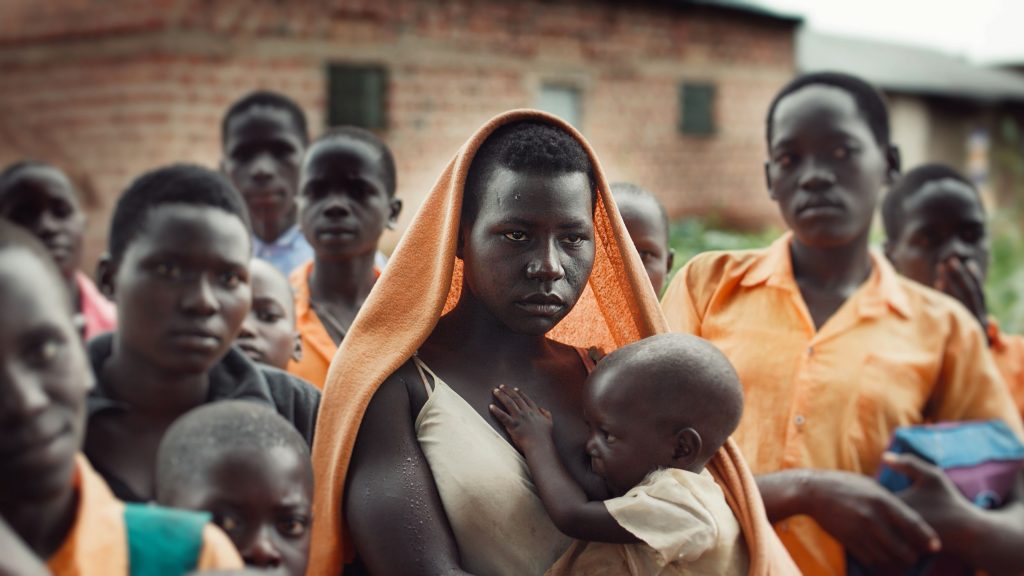
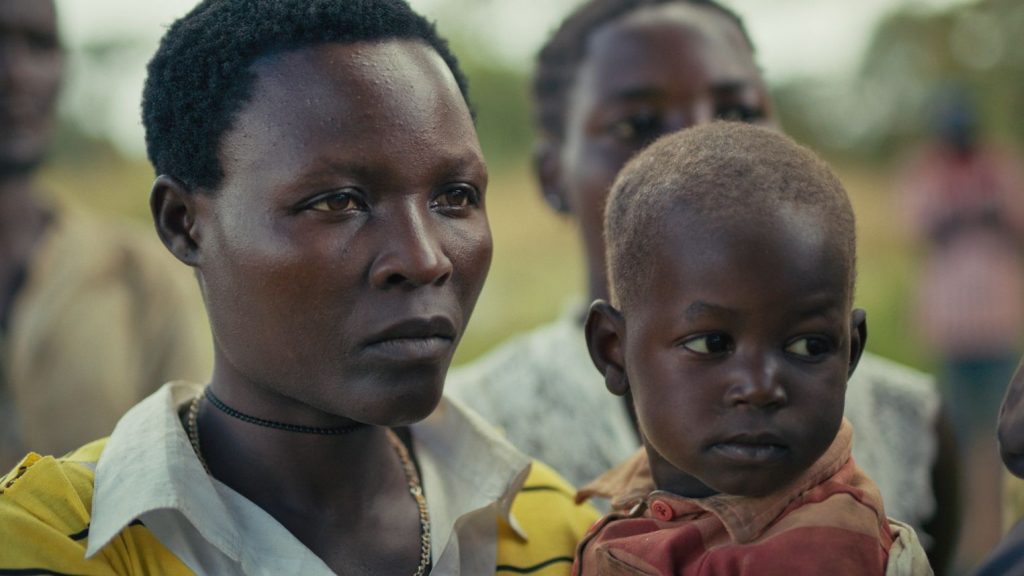
Filmmaker 5.3: You grapple with myriad themes in the film—trauma, victimhood, survival, violence, nature vs. nurture, morality, good vs. evil, religion, justice, war—as you explore Dominic Ongwen’s life. Are there any imperatives you agreed had to be communicated in the film?
From the outset we were very interested in Ongwen’s double role as a victim and perpetrator and asking ourselves the question if we would have acted differently in his shoes, and whether we are all born with an inherent moral compass. Delving deeper into the research and all the film’s complexities it felt like peeling an onion where more and more themes would reveal themselves, themes we felt were crucial to include since they are all somehow connected. Instead of giving easy answers we are trying to ask some difficult questions and we hope that the audience will watch the film and come to their own conclusions.
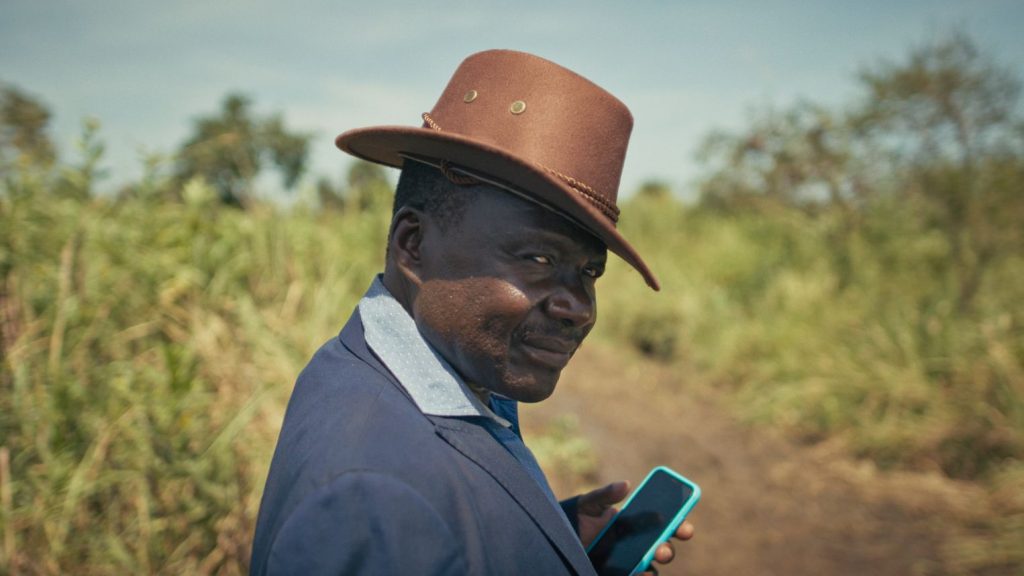
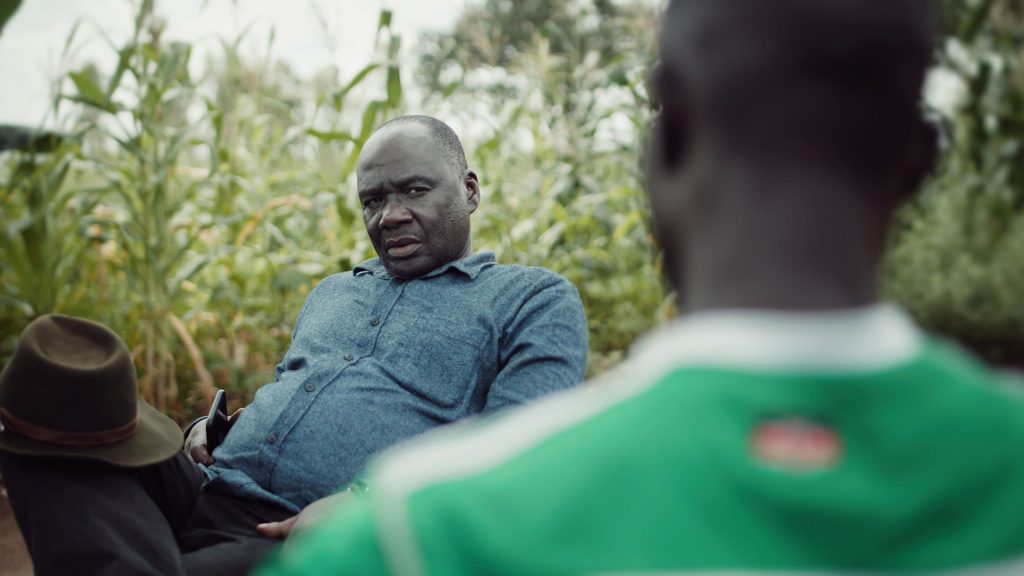
Filmmaker 5.4: The film centers on the trial of Dominic Ongwen and, at the same time, could be seen as also putting on trial the International Criminal Court and its role to investigate, prosecute and try individuals accused of genocide, war crimes and crimes against humanity. Why is sharing Dominic Ongwen’s story and trial on film important as the world considers the ICC’s role?
The ICC is a globally significant institution, with a unique and vital role to play in ensuring justice for victims of war crimes, genocide and crimes against humanity, but it has been heavily criticised by African leaders for only targeting Africans. According to the ICC website, all of its ongoing cases are based in Africa, which is why some critics call it a political instrument. We believe it is crucial for all of us to gain a deeper understanding of how the ICC functions, its strengths and weaknesses, and how it can be improved. This knowledge is especially important if we hope to see the court hold powerful contemporary war criminals accountable, such as Vladimir Putin. By delving into the workings of the ICC, we can better understand its potential and shortcomings when it comes to bringing perpetrators to justice. And Ongwen’s case is probably the most challenging that the court has ever dealt with up until now. The defendant was abducted at the age of nine years old and heavily indoctrinated, and he is the only individual from the entire Ugandan civil war that has been tried for war crimes and crimes against humanity at the ICC, while his abductor Joseph Kony remains free. We find it intriguing to look at how the court deals with this unenviable and difficult task to achieve justice.
Filmmaker 5.5: What is your greatest hope for what audiences take away from viewing Theatre of Violence?
While watching our film, we hope the following questions will linger with our audience: As a society, how should we deal with a man like Ongwen, who is both a victim and a perpetrator? Is it fair to make Ongwen the “poster boy” of the entire Ugandan conflict? And by only prosecuting Ongwen, do we legitimize the governance of autocratic presidents like Museveni, who has been ruling Uganda with an iron fist for more than 37 years, and whose army has also been accused of committing atrocities and crimes against humanity?
CLASSIC COUPLE ACADEMY RECOMMENDS
See the North American premiere of Theatre of Violence at Hot Docs 2023
Tuesday, May 2 – 5 :30pm, Scotiabank Theatre 7
Saturday, May 6 – 11: 45 am, Scotiabank Theatre 6
DENMARK, GERMANY
ENGLISH, LUO, ACHOLI, FRENCH
FULL SUBTITLES
NORTH AMERICAN PREMIERE
